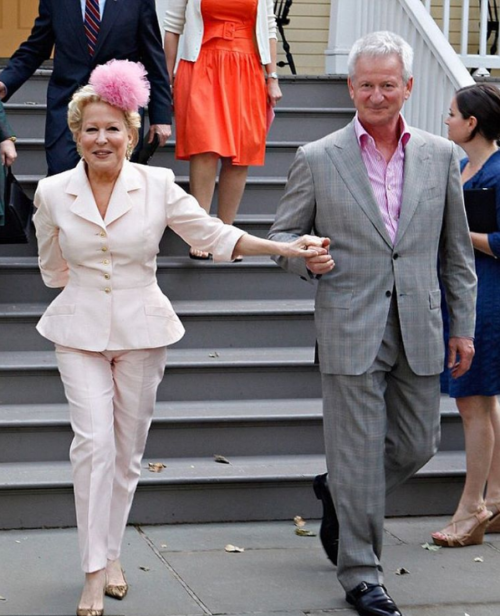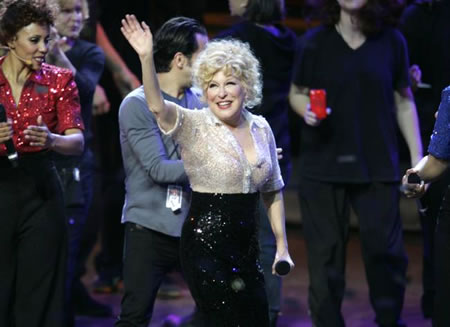Philly.com
City’s ‘green machine’ gets a new leader
Pa. Horticultural Society names Drew Becher to succeed Pepper.
By Virginia A. Smith
Drew Becher, an urban warrior who has spent 15 years promoting community gardens, tree-planting, and environmental education for underserved children in Chicago, Washington, and, most recently, New York City, is the new president of the Pennsylvania Horticultural Society, Philadelphia’s “green machine.”
He succeeds Jane G. Pepper, 64, who retires June 1 after more than three decades of association with the society, the last 25 years at its helm.
Since 2006, Becher, 40, has been executive director of the New York Restoration Project, a high-profile endeavor founded by the actress and singer Bette Midler in 1995 to improve New York City’s parks, neighborhood gardens, and open spaces.
“He’s high-energy, smart, articulate, and enthusiastic about the impact that greening can have on a community – a direct fit,” said John K. Ball, the society’s board chairman and a member of the committee that authorized an international search for Pepper’s replacement in late 2008.
It took a year for Phillips Oppenheim executive recruiters to winnow 220 candidates from the United States, Canada, and the United Kingdom down to 30, then to seven, and finally to just one. Oddly enough, the search ended where it began – in Philadelphia.
Although Becher (BECK-er) stays at an apartment in New York’s Chelsea neighborhood during the workweek, for four years he’s owned a home in Chestnut Hill with his partner of 14 years, Eric Lochner, chief marketing officer for Kenexa Corp., a human-resources software company in Wayne.
During a lengthy interview at his home here, Becher said he was thrilled about the horticultural society job, calling Philadelphia “the center of landscaping and horticulture.”
“I’ve been tracking this organization for 20 years. It’s one of the few I was really interested in,” Becher said, recalling that when he worked for Chicago Mayor Richard M. Daley, “I came to the Philadelphia Flower Show to spy because we were trying to create a flower show.”
Becher spied, too, at Longwood Gardens in Kennett Square and Chanticleer in Wayne, two of this region’s premier public gardens. “We stole a lot of ideas for Chicago,” he said.
The society declined to release Becher’s salary, saying only that it was “in line with standards for nonprofit leaders in this region.” According to the New York Restoration Project’s latest federal tax documents, Becher earned $197,500 in the fiscal year ending Sept. 30, 2008. Pepper’s salary had been $200,000 until she took a voluntary 10 percent pay cut last year because of economic pressures.
Since Becher took over the New York Restoration Project in 2006, its annual budget has gone from $5 million to $13.2 million. He currently oversees 90 employees, plus 30 staffers at the New Leaf, a restaurant near the Cloisters museum, which the restoration project manages.
The horticultural society, by comparison, has 16,000 members, 112 employees, and a $21 million budget.
Becher grew up in Dayton, Ohio, where his family’s steel-fabrication business was a community mainstay for 150 years before going under in the mid-1990s. He describes himself as an average student who had a strong interest in history, art, and urban planning, even at a young age.
He was a frequent hiker, a credible soccer player, and an excellent golfer (12 handicap) who – without prompting from his parents – mowed lawns and weeded flower beds for family and neighbors. At 12, he was the youngest person ever to win his Ohio township’s “Most Beautiful Yard” contest.
In high school, Becher started his own landscaping business and got a real estate license – yes, he sold some houses – before enrolling at the University of Cincinnati, where he studied urban design and planning.
There, he took it upon himself to maintain the plantings around fraternity and sorority houses and launch a campus beautification campaign that eventually became the college’s landscaping master plan. “It all got done,” Becher said.
After his 1993 graduation, he headed to DePaul University in Chicago for a master’s degree in public administration. He completed the course work, but before his thesis was written he responded to a notice on a school bulletin board that would put his career in fast-forward.
Becher landed an internship in Chicago’s City Hall, which led to a succession of positions with Daley, working on the administration’s celebrated “green” agenda. The journey culminated in a job as chief of staff for the city’s large, self-taxing Park District, where Becher oversaw 2,800 employees and a budget of $150 million.
Around this time, the Chicago Sun-Times dubbed Becher a “creative 33-year-old whiz kid.”
Next stop: Washington’s planning office, where he worked two years on the District of Columbia’s sustainability agenda.
Then, in 2006, Becher was recruited away to the New York Restoration Project, where he has raised $6 million to revitalize 22 community gardens on 140 acres of vacant land. He also lined up corporate partnerships with BNP Paribas, a global banking group, Bloomberg L.P., Target, Toyota, Home Depot, and others.
In 2007, Becher helped found the 10-year MillionTreesNYC initiative, which the restoration project leads. Total trees planted in the city’s five boroughs to date: 310,000.
Maria Rodale, chief executive of Rodale Inc., the book and magazine publisher in Emmaus, Pa., is on the restoration project’s board and on the search committee that hired Becher there.
“He has this rare balance. He literally loves fund-raising and, at the same time, he has the knowledge of landscaping and gardening and how to work with people on the ground, so he can both go to Target and get huge sponsorships but also manage hundreds of green-collar employees,” said Rodale, granddaughter of the late J.I. Rodale, who founded Rodale Inc. in 1930.
Becher said it was too soon to outline what he might do at the society, but he did share these tidbits about himself:
He’ll have to buy a car for his new job. He plans to seek out Mayor Nutter and City Council. He likes his office “out in the open, in a big bullpen.” He looks forward – no joke – to speaking to every group and garden club that will have him. He’s an iPhone kind of guy; he even has apps for plant guides.
And he thinks of nonprofits as companies. “Tree-plantings, neighborhood events, all of our gardens, they’re all our products, and all of our gardeners are our customers,” Becher said.
“If you have good products and treat customers right, they will help you,” he added, emphasizing that to engage corporate sponsors, “you have to mesh the organizations, make their brand better and our brand better. Then you exceed their expectations.”
Sounds much like Pepper, who has guided a revolutionary evolution, one might say, at the 183-year-old society, the oldest such group in the country.
Historically, the society was devoted to horticulture and those with the means to pursue it. Today, the tent is big and wide, and horticulture is a means to an end – the end being a better quality of life in city neighborhoods and beyond.
Besides the yearly flower show, the society is best known for its Philadelphia Green program, a messianic mix of cultivating community gardens, planting trees, reclaiming abandoned properties, and sprucing up public spaces, such as the Azalea Garden and Logan Square.
The Becher announcement, shared with society employees yesterday, ends more than a year of anxiety over a replacement for Pepper, who was 39 when she took the top job.
The 2010 Flower Show – from Feb. 28 through March 7 at the Convention Center – will be her last as president. Though Becher has been to the show before on those aforementioned spy missions, he’ll also be on hand to greet show-goers.
This time, as president-elect.






